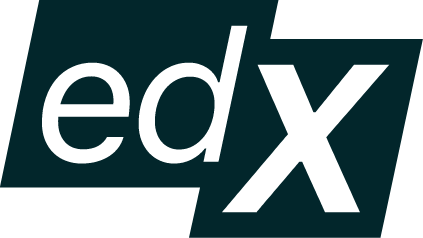
Competitive candidates understand how to speak confidently about their business and transferable skills in ways that sell their professional value to employers. Not there yet? Let us help.
View more details about how to prep for an interview and general interview questions in our Behavioral interview prep guide. Use this resource to prepare for questions you may be asked when interviewing for roles in the business field.
This guide provides a list of sample interview questions and tips on building your responses to common interview questions in the business hiring process.
Interview questions by category
We have categorized the interview questions into three sections. Feel free to read straight through or jump to the sections that interest you most.
Tell me about yourself.
Give a snapshot of your work history. Think about your:
- Past – Previous experience and education.
- Present – Your current job and how it’s preparing you for this role.
- Future – Why you want the job you’re interviewing for.
Your snapshot should show the interviewer how your experiences equip you with the skills to succeed at their company and why you are interested in the specific role.
Expert advice
“I always ask, no matter how dreaded it is, tell me about yourself, because it’s really telling…it’s a warm-up question, so you should be able to answer that…I really recommend everyone has an answer prepared for it.”
– Elle A., recruiter

What are your greatest strengths and weaknesses as a business professional?
Consider the job description and the required skills in the posting, and align your answer with a skill you’ve mastered. Discuss your areas of expertise and how they will benefit the organization, team, or position. For weaknesses, discuss areas for improvement and what you’re actively doing to improve those skills. Do not cite necessary skills for this position as weaknesses.
Why do you want this job?
Demonstrate that you’ve researched the company, and express what you like about it and why your skills would be a good fit for the job. Explain how the role will contribute to your career progression and what you can contribute to the team. Be specific and enthusiastic about potentially working for the company.
What are your salary expectations?
Prepare thoroughly for this question and start by reviewing our Salary negotiation guide. Research salary ranges for this particular job, this industry, and your geographic area using websites like Payscale.com or Salary.com. The interviewer wants to know how you value yourself. To avoid leaving money on the table, ask how the interviewer values the role before stating your expectations. Aim high but within the range you’ve researched, and be prepared to provide examples of why you’re worth the salary you cite.
Do you have any questions for me?
Interviewers often ask this question to gauge your interest and see if you’ve researched the company. Prepare a few questions in advance, but keep in mind that your questions may be answered during the interview. To show you’re engaged with the interview process, prepare questions related to work, company culture, or day-to-day responsibilities of the job.
Expert advice
“Some job seekers assume that the employer can make these decisions based on a resume, but they want to get to know you as a person to see if you would be a proactive/positive/helpful/efficient (etc.) member of their team. By brainstorming ways that you can elaborate and provide examples of the skills they are seeking, you are giving them reason to want to hire you.”
– Deanna P., career expert at edX

Describe a difficult experience you encountered with a client. How did you handle it?
This question assesses your competency in dealing with and resolving problems. Use the STAR Method to answer. (Learn more about the STAR Method in our Behavioral interview prep guide.) Describe the situation and task at hand. Next, discuss your direct actions, then detail the results of your actions. Avoid personal problems; select problems relevant to the work, your business interests, and those that will impress your interviewer.
Here’s an example:
A regular customer once approached me about an issue they encountered with a product they received that they disliked. I asked a few questions to ensure I fully understood the problem and why they were dissatisfied before assuring them that I’d be looking into the situation further and would get back to them with a plan by the end of the week. I spoke to my team and discovered there was a clerical issue in our computer software that prompted their order to be coded incorrectly. I redistributed a few of our projects for the remainder of the week so this order could be prioritized due to its special nature. I called the customer back by the end of the week to apologize again, explain the mistake, and promise them the order would be completed within two business days. I also refunded them, and as a result of the communication and quick action and follow-up, I am happy to share that we’ve retained them as a customer to this day.
Tell me about a time you had to learn something completely new.
The interviewer is assessing how open and eager you are to learn. Every employer is looking for entry-level candidates willing to develop a new skill or take on new assignments for the good of the team. Identify a time when you had to learn something completely different from your area of expertise or interests, then focus on why you decided to pursue it and how you picked it up.
Describe how you typically approach a project.
Interviewers will want to know more about your workflow, problem-solving ability, and organizational skills. Explain the general processes you work through and the deliverables you typically produce. Focus on the action steps you take to describe your relevant and transferable skills.
How do you approach working with a difficult stakeholder?
You will work with many different internal and external personalities as a business professional. This question assesses your communication skills and how you resolve difficult situations. Provide an answer that describes how you successfully navigated working with a demanding client/customer. Use the STAR Method to structure your response.
Why are you leaving your current job?
This can be a tricky question; always remain positive. When discussing your current company or environment, give a truthful reason for leaving, but do not bring negativity into the discussion. Instead, focus your answer on developing and expanding your career in the business field. Share what you’ve learned about this potential new employer and how it fits your goals, strengths, and experience well.
Expert advice
“Always keep answers positive! Demonstrate what you’ve learned from your program and work experience. Structure anecdotal examples using the STAR framework (Situation, Task, Action, and Result) for behavioral questions to provide details about your accomplishments, transferable skills, and business prowess.”
– Tramaine I., career expert at edX

How do you prioritize tasks and manage deadlines?
Your response to this question shows the interviewer how effectively you determine what tasks need more attention than others and how you manage your time — answer by describing how you track projects, tasks, and deadlines. Include specific examples of managing your work to assure the interviewer that you are well organized and can submit work on time.
What would you want to accomplish within your first three to six months of employment?
The interviewer wants to know that you’ve put some thought into an action plan for potential work at their company. If the interviewer has shared expectations with you or any pain points they face, this question is an excellent opportunity to address those factors.
Why do you want to be a leader in our company?
Your response to this question gives the interviewer a sense of how much you’ve thought through what this leadership role entails and if you are ready for the responsibilities. They may also want to assess how well your professional values align with the company values. Discuss what you enjoy about being a leader and/or experiences that have prepared you for leadership.
What is your management style?
This question assesses how you see yourself as a business leader and how you’ll lead others. First, explain what makes a good leader, then provide examples of how you meet and exceed those expectations.
Can you tell me about a time when you had to make an unpopular business decision?
The key to this question is understanding that they are more interested in how you handled the decision than the decision itself. Discuss why the decision was unpopular, the data or information you used to inform your reasoning, how you rallied support, and the immediate and long-range outcomes. Demonstrate your leadership style, accountability, and business acumen.
How do you envision the future of our company?
If you are interviewing for a C-suite role, you’ll be at the helm of future strategic decisions for the company. The interviewers will be interested in your thoughts about the company’s future and how you envision your role there. You need to describe where you see the company going and how you plan to help orchestrate that vision with your role.
How do you prioritize competing priorities?
This question is designed to understand how you make decisions and consider different stakeholders. In the C-suite, you need to prioritize different employees and teams in addition to board members, company beneficiaries, stockholders, etc. You must describe your decision-making process and how you’ll consider the various stakeholders you’ll serve.



